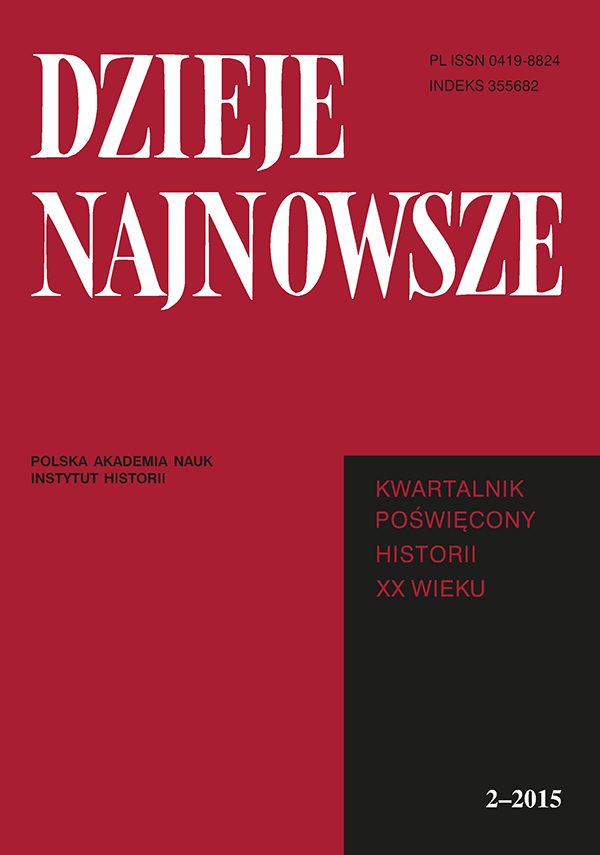„Wyeliminowanie z szeregów elementu uciążliwego i niebezpiecznego”. Sprawa Obozu Dyscyplinarnego Armii Polskiej na Wschodzie w Latrun w Palestynie (1944–1945)
DOI:
https://doi.org/10.12775/DN.2015.2.07Abstrakt
“The Elimination from the Ranks of a Troublesome and Dangerous Element”. The Disciplinary Camp of the Polish Army in the East in Latrun (Palestine, 1944–1945)The question of a detention camp in Latrun (Palestine) remains an almost unknown episode in the history of the Polish Armed Forces in the Middle East during the Second World War. The camp was established at the beginning of 1944 for the purpose of isolating officers and soldiers suspected of communist and pro-Soviet activity as well as men regarded as dangerous common criminals. The camp inmates included also several score civilians, former soldiers accused by the British authorities of assorted crimes and felonies. The creation of the camp met with a negative reaction on the part of the Polish civilian and military authorities in London. Prepared legal opinions clearly indicated the absence of legal foundations for the establishment of a detention camp. It was also indicated that the opening of the camp was used for propaganda attacks launched by part of the press in Great Britain and the USA, aimed at the Polish authorities in exile as well as the Polish Armed Forces. The retention of the camp was supported primarily by the Polish military command in the Middle East, which intended to isolate a group of soldiers representing pro-Soviet attitudes, and by Polish civilian authorities in the Middle East, fearing an intensification of common crime. With the support of the Government of the Republic of Poland and the Commander-in-Chief, the Minister of National Defence ordered the closure of the camp (31 May 1944). This did not take place, however, because for several months the British authorities in Palestine did not consent to the discharge of several score inmates. The British obviously planned to encumber the Polish side with responsibility for the isolation of persons whom they regarded as dangerous. The British side actually inspired the creation of the camp, and for another half a year made it impossible to close it, thus putting the Polish side in a very awkward situation. Ultimately, the camp ceased functioning in January 1945.
Pobrania
Opublikowane
Jak cytować
Numer
Dział
Statystyki
Liczba wyświetleń i pobrań: 496
Liczba cytowań: 0



